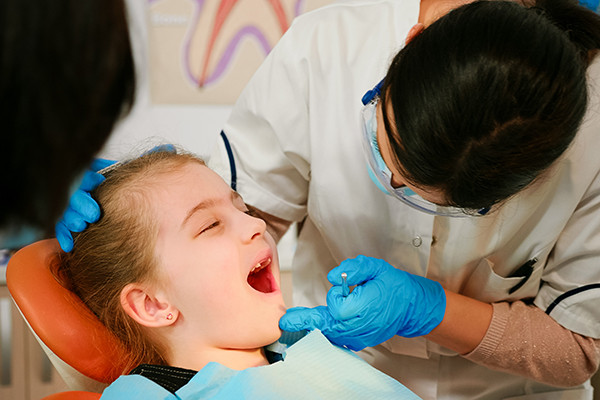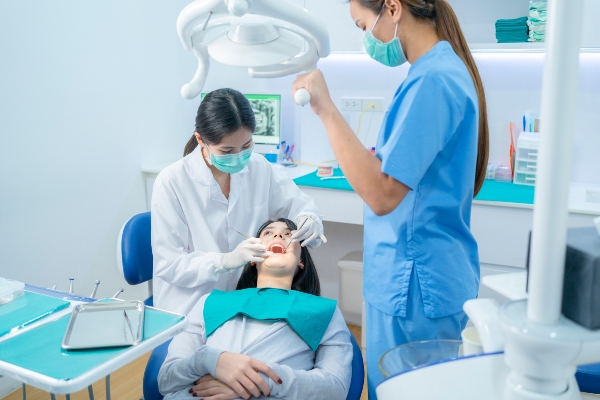Who Should See a Special Needs Dentist?

A special needs dentist takes care of patients with physical, mental, or behavioral disabilities. They have the training to deal with the challenges and limitations of treating patients with special needs. This suggests an extra level of specialized training over and above the dentist’s education in dental school.
Not every dentist has the ability to provide treatment to special needs patients. For this reason, a caregiver should make the extra effort to find a dentist that caters specifically to patients with disabilities. Here is what you should know about special needs dentists and their patients.
How a special needs dentist works with special needs patients
It takes patience and compassion to work with people who have special needs. For a pediatric dentist, these qualities should be innate. Training only enhances these qualities by providing tools and techniques that help with the care of special needs patients. The training covers several areas of study:
- Communication with patients and their caregivers
- Psychology and behavioral studies
- Sedation dentistry
- Provision of physical access to facilities
Special needs dentists with the right training can provide dental care while working around their patient’s needs and temperament. Here are the people that could benefit from this level of care.
1. People with medical conditions
Systemic health issues can have a knock-on effect on oral health. Medical conditions like a cleft palate, a jaw malformation, or an immune disorder translate into vulnerabilities in oral health.
Medical conditions can make it hard for a person to maintain good oral hygiene. They can make a patient vulnerable to oral infections and conditions like excessive bleeding. Such patients need preventative dental care regularly. A special needs dentist will customize treatment to meet the unique needs of individual patients.
2. People with a physical disability
A patient that uses a wheelchair will need help to get into the dentist’s chair. An individual with cerebral palsy will need comfortable, non-threatening displays to stabilize their body while they sit in the dentist’s chair. Dental practices that offer special needs dentistry have facilities that are accessible to patients with physical disabilities.
3. Patients with cognitive limitations
Dementia, severe Down syndrome, or a traumatic brain injury can limit a person’s ability to take care of their oral health. Such patients need frequent dental checkups and teeth cleaning.
A special needs dentist has the training to get through to such patients. They can use their communication and psychology skills to put the patient at ease during treatment. The dentist also knows how to teach simple behaviors that the patient can grasp and memorize. These simple lessons can help the patient learn how to perform small tasks that help with their oral hygiene.
4. Patients with behavioral issues or psychiatric problems
An important aspect of being a special needs dentist is dealing with difficult situations. The dentist’s office can inspire fear and anxiety in the bravest person. The anxiety can be much worse in patients with special needs.
This is why caregivers should find a dentist who can de-escalate a situation where the patient reacts badly when they get to the dentist’s office. The right dentist will have the patience, bravery, and tactics to manage a difficult situation.
We help caregivers and patients to work towards good oral health
Our practice takes an adaptable approach to meeting the needs of our patients with special needs. We make physical arrangements that make our facilities more accessible and comfortable for our patients. Even better, our helpful staff have the training and experience to handle the needs of the people who need us the most: The patient and their caregiver.
All these are great reasons why you should schedule a meeting with our special needs dentist. They are happy to learn about your unique situation and make arrangements to provide excellent oral healthcare.
Request an appointment here: https://www.hvkidsmiles.com or call Hudson Valley Pediatric Dentistry at (845) 363-4177 for an appointment in our Middletown office.
Check out what others are saying about our services on Yelp: Read our Yelp reviews.
Recent Posts
Dental sealants safeguard the teeth against tooth decay by forming a barrier between bacterial plaque and the tooth enamel. The many tiny grooves on the surfaces of the back teeth may catch food particles. Since routine brushing cannot entirely remove them, they often stay there for an extended period. Cavities develop as a result of…
If a cavity develops and worsens, it could lead to the risk of a dental emergency due to an infection or severe discomfort. Dental sealants significantly reduce the risk of a dental emergency by helping to prevent cavities in vulnerable areas of teeth. Read on to learn how dental sealants can prevent a dental emergency…
Pediatric dentistry is a field of dental care that helps foster healthy oral habits in children and adolescents that can last a lifetime. By introducing young patients to regular dental care early on, these dental professionals and the patient's parents can set the foundation for strong, healthy teeth and gums. Here are five ways pediatric…
Cavity treatment for kids is important to keeping their teeth healthy and their smiles growing strong. Cavities are one of the most common dental problems in children, but they can be treated and prevented with proper care. Parents can help their children maintain healthy teeth and avoid future dental issues by understanding how to treat…


